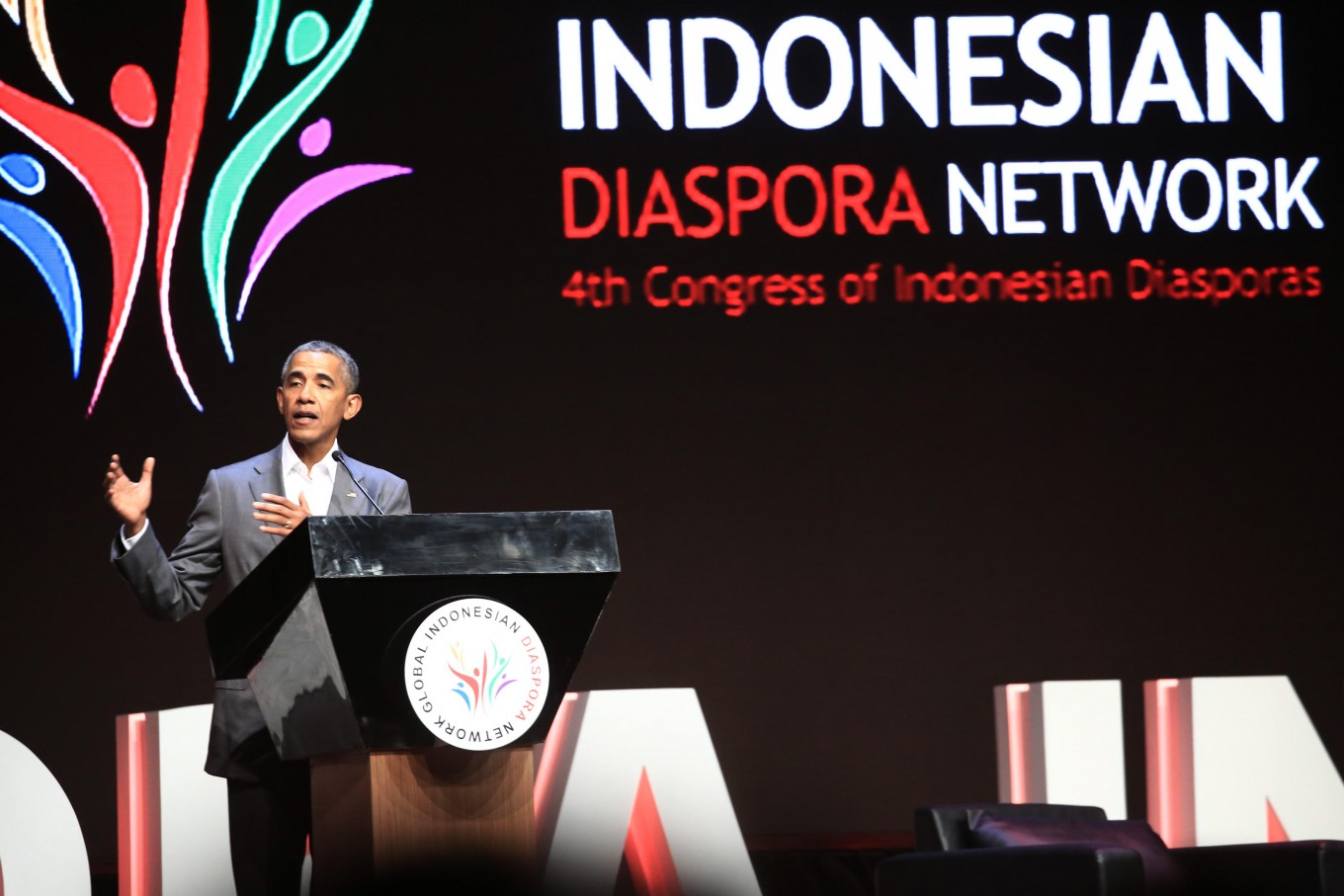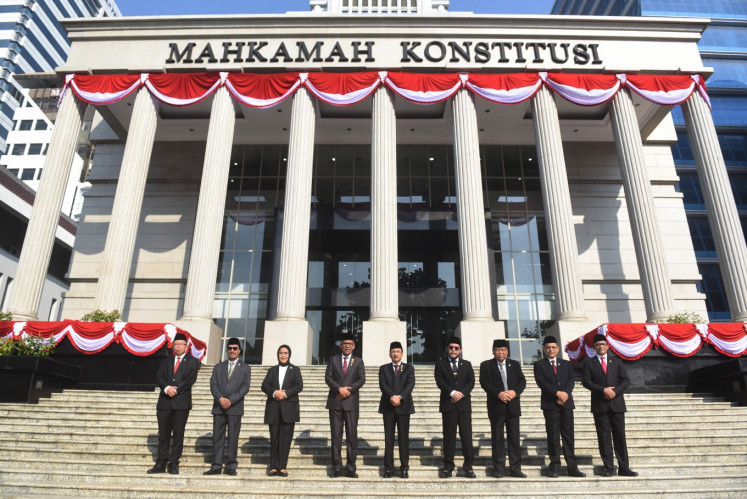Popular Reads
Top Results
Can't find what you're looking for?
View all search resultsPopular Reads
Top Results
Can't find what you're looking for?
View all search resultsRethinking dual citizenship
There are others like Orient who, given the chance, would repatriate to serve the nation in various capacities.
Change text size
Gift Premium Articles
to Anyone

T
he number of Indonesians living and working abroad has grown so large that we cannot afford to ignore their potential contributions to their homeland.
Granted, some have taken the citizenship of their adopted country, mostly for practical purposes, including ease of travel. Indonesia does not allow dual citizenship, so some have given up their Indonesian citizenship to comply with the law while others have kept both their Indonesian and foreign passports.
Beyond their passports, however, they are Indonesians through and through.
It is therefore unfortunate to see the harsh responses to the news that the regent-elect of Sabu Raijua in East Nusa Tenggara province, Orient Riwu Kowe, holds an American passport. Orient and running mate Thobias Uly beat two other pairs in the 2020 regional election by winning 48 percent of the vote. Orient’s victory had been confirmed and he would have been sworn in this week with 170 other candidates who won the simultaneous regional elections on Dec. 9.
It is true that Orient made a mistake by not declaring his American citizenship. He broke the law. He is now trying to resolve the issue, but could still be inaugurated in March with the other newly elected leaders whose victories the Constitutional Court has yet to confirm.
Whatever transpires with Orient’s case, this episode has revived the long-standing demand, reiterated at every conference of Indonesian diaspora, for the government to allow dual citizenship so Indonesians overseas can return and serve their country of origin. There are others like Orient who, given the chance, would repatriate to serve the nation in various capacities.
Orient’s case is not unprecedented. In 2016, Arcandra Tahar was removed from the Cabinet of President Joko “Jokowi” Widodo only a week after his installment as the energy minister, when it came to light that he held an American passport. Arcandra became momentarily stateless when he renounced his American citizenship and the government revoked his Indonesian citizenship.
But Jokowi, who had called on Arcandra to serve the nation, restored his Indonesian citizenship and later appointed him as the energy deputy minister.
The late B.J. Habibie was summoned to return from Germany in the 1980s by then-president Soeharto to help build Indonesia’s aviation industry. As vice president, he was automatically elevated to the presidency in 1998 when Soeharto stepped down, and served the nation for 17 months as its leader.
The rumors that he had German citizenship were only cleared much later, after he had retired from public life: Habibie said he had been offered honorary German citizenship, but that he turned it down.
Sadly, many Indonesians continue to regard those who give up their Indonesian citizenship as turning their back on the country, even calling them traitors. This mindset prevails among politicians and in the government, which stubbornly refuses to allow dual citizenship despite growing evidence that the ever-expanding Indonesian diaspora contribute added value to the nation.
To deny Orient the post of regent is to deny the aspirations of the Sabu Raijua voters. And to deny Orient his political rights would discourage overseas Indonesians from coming home to serve their country.









